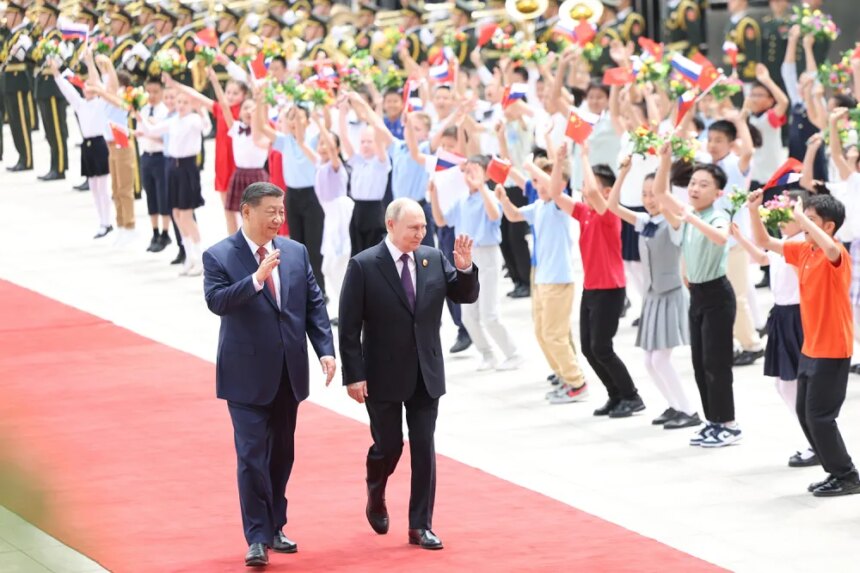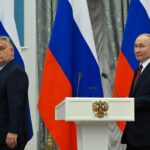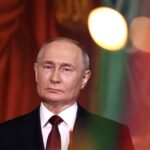Summary by Geopolist | Istanbul Center for Geopolitics:
At the recent NATO summit in Washington, the alliance issued its most severe rebuke of China yet, accusing Beijing of providing critical support to Russia’s war effort in Ukraine. The joint declaration by NATO’s 32 leaders called China a “decisive enabler” of Russia’s military operations due to its “no limits” partnership with Moscow and significant support for Russia’s defense industrial base .
Key Points from the NATO Summit Declaration:
- China’s Role in Supporting Russia:
- The declaration emphasized China’s extensive supply of materials critical to Russia’s defense industry, including dual-use goods like microchips, sensors, and radar, which can be used in weapons manufacturing.
- NATO Secretary-General Jens Stoltenberg and other officials stressed that Chinese components are being used in Russian bombs, aircraft, and weapons used in Ukraine.
- Economic Sanctions and Strategic Measures:
- NATO officials are considering imposing more aggressive sanctions on Chinese entities that facilitate trade with Russia, potentially targeting Chinese financial institutions.
- Previous sanctions by the U.S. and EU on Chinese companies have aimed to stem the flow of dual-use goods, with some success as trade volumes of these goods have declined since their peak.
- China’s Reaction and Global Impact:
- China’s Foreign Ministry spokesperson Lin Jian rejected the accusations, stating NATO’s claims are baseless and ill-motivated.
- Experts note the geopolitical challenge in cutting off Chinese support completely due to the strategic rivalry between the West and the China-Russia alliance. Chinese companies continue to supply Russia, partly because of economic motivations and the bleak economic prospects at home.
- Geopolitical Implications:
- The summit highlighted the growing consensus between the U.S. and Europe on China’s role in the conflict, signaling a united front in confronting Beijing.
- Discussions at the summit included potential secondary sanctions on Chinese banks and entities, reflecting a strategic effort to disrupt the supply chains supporting Russia’s military.
- NATO’s Broader Strategic Focus:
- The NATO communiqué also addressed China’s broader ambitions and coercive policies, emphasizing the need for vigilance against China’s efforts to divide the alliance.
- The summit underscored the interconnectedness of security challenges in Europe and the Indo-Pacific, reflecting NATO’s expanded focus on global security dynamics.
Overall, the NATO summit’s strong stance against China represents a significant shift in the alliance’s approach, highlighting the increasing geopolitical tensions and the critical importance of cutting off support to Russia in the ongoing conflict in Ukraine.
For more details, read the full article here below.
Can NATO Really Cut Off China?
At the NATO summit in Washington, the alliance issued its strongest indictment yet of China’s support for Russia, accusing Beijing of supplying critical materials for Russia’s war machine and signaling that NATO is prepared to impose higher costs on China going forward.
The joint declaration issued by all 32 leaders of the alliance said Beijing has “become a decisive enabler of Russia’s war against Ukraine through its so-called ‘no limits’ partnership and its large-scale support for Russia’s defence industrial base.”
Chinese Foreign Ministry spokesperson Lin Jian rejected the accusations, saying that “NATO’s claim that China is responsible for the Ukraine crisis is ill-motivated and has no basis.”
The NATO statement was significantly sharper than the language coming out of last year’s summit, which only urged China not to support Russia. It reflects a growing consensus between the United States and Europe on China’s role in the war.
China “has had this view that maybe it can drive a wedge between Europe and the U.S. This declaration is a big signal that, no, it really can’t,” said Max Bergmann, the director of the Europe, Russia, and Eurasia program at the Center for Strategic and International Studies. “When you see real shifts in language like this, that sends an important signal.”
With this newly united front, NATO appears to be gearing up for a stronger confrontation with Beijing over its role in the war in Ukraine. China “cannot enable the largest war in Europe in recent history without this negatively impacting its interests and reputation,” the leaders said in the communique
Officials attending the summit told Foreign Policy that they are considering imposing more aggressive sanctions on Chinese entities for funneling supplies to Russia.
“I think that secondary sanctions is something which we have to think about already,” Swedish Foreign Minister Tobias Billstrom said in an interview on Tuesday. Such sanctions could target Chinese financial institutions that help facilitate trade with Russia.
With Russia continuing to demonstrate its staying power in Ukraine, NATO sees cutting off Chinese supply chains as critical. “There is a recognition that defeating Russia would be extremely difficult as long as Chinese support continues,” said Cheng Chen, a political scientist and Russia-China expert at the University at Albany, SUNY.
However, dealing a fatal blow to the Chinese export of critical materials to Russia’s defense industry may prove an impossible task.
To date, Chinese companies aren’t believed to have provided weapons directly to Russia; however, overall trade between the two nations has ballooned since Russia’s full-scale invasion of Ukraine in February 2022. Bilateral trade grew by nearly $100 billion between 2021 and 2023.
Of particular concern to Western officials is the Chinese export of “dual-use” goods such as microchips, sensors, and radar that can be used in weapons as well as machine tools that can be used to manufacture weapons. Russia is heavily reliant on China for these items. According to a recent brief in Carnegie Politika, 89 percent of Russia’s import of goods on the G-7’s high-priority export control list came from China in 2023.
NATO Secretary-General Jens Stoltenberg said at a press conference on Wednesday that Chinese components are being used in Russian bombs, aircraft, and weapons that are being used to attack Ukraine—a talking point that echoed across the alliance. “They’re not giving weapons yet, but basically they give everything that makes a weapon,” Royal Netherlands Navy Adm. Rob Bauer, the chair of NATO’s Military Committee, told Foreign Policy. “And therefore they are complicit as well.”
Over the past two years, the United States and the European Union have sanctioned numerous Chinese companies and individuals to try to stem the flow of these dual-use goods. These sanctions started months after the invasion; in June 2022, the U.S. Commerce Department added five Chinese companies to its Entity List—which prevents U.S. companies from exporting to those Chinese companies—for continuing to contract with Russian companies in the defense industry.
Since then, the Commerce and Treasury departments have continued blacklisting Chinese entities every few months. Examples include a company called Spacety China for providing satellite imagery of Ukraine to the Wagner Group, Shandong Oree for selling machine tools, and Shandong Ki Forest for shipping semiconductors.
Last summer, the EU joined the United States for the first time in sanctioning Chinese companies for their role in supplying Russia’s war machine. This drumbeat of sanctions continued in the lead-up to the Washington summit, with the EU and United States issuing new sanctions in the last two months.
Trade data suggests that these efforts are making an impact. The trade volume of high-priority dual-use goods from China to Russia peaked in December 2023 at more than $600 million and declined to under $300 million by April. However, that is still a significant figure.
If the United States and EU imposed sanctions on Chinese banks and other institutions facilitating this trade, that could further block the flow of goods. However, such sanctions are most effective in targeting large-scale transactions, experts said; the piecemeal nature of Chinese dual-use exports to Russia presents a major challenge. And fearing secondary sanctions, many Russian companies have already shifted their transactions with Chinese companies from Chinese banks to intermediaries in the United Arab Emirates, Kazakhstan, Kyrgyzstan, and other countries, Reuters reported.
Generally speaking, Chinese companies are hard targets, Chen said, in part because they are facing bleak economic prospects at home. “Chinese companies might have provided Russia with an economic lifeline, but the war in Ukraine also provides a lifeline for many small and medium-sized companies in China,” she said. “The desperate need for profits ultimately trumps the fear of sanctions for many Chinese companies.”
Therefore, the Western sanctions will continue to be a “cat and mouse game,” she said, and they can only be expected to limit—not eliminate—the trade.
Although China’s dual-use exports to Russia have been largely coming from private Chinese companies, the Chinese government could step in to restrict the trade. However, experts point to the broader geopolitical landscape—namely, the growing cleavage between Western nations and China, Russia, and their allies—as a reason why an intervention by the Chinese government is unlikely.
“From the Chinese government’s point of view, the West has not provided sufficient incentives for it to crack down on such activities. China’s strategic rivalry with the U.S. seems irreversible,” Chen said. “As NATO expands into Asia, as evidenced by Japan and [South] Korea’s increasing involvement, China sees little to gain by compromising its friendship with Russia, its biggest and most powerful quasi-ally.”
Nonetheless, the EU and United States are likely to continue pushing China as far as they can to take action. “If they are fueling a war in Europe, and at the same time they want to remain friends with us and trade with us and have a good relationship, that cannot go on forever,” Bauer said. “There will be, I think, in the coming months a political discussion with China and mounting pressure. You can’t have it both ways.”
By Lili Pike, Jack Detsch
Source: Foreign Policy







